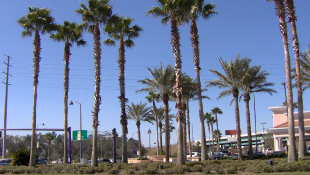|
|
|
|
Progress Made as 1,100 Tons of Steel Removed from Key Bridge Collapse
|


Under Code of Civil Procedure section 585.310, you have 5 years after a complaint is filed to bring a case to trial, absent the court granting relief.
There’s the 5 Second Rule, But Have You Heard of the 5 Year Rule?
Tuesday, April 23, 2024
—
Garret Murai - California Construction Law Blog
They’re called deadlines for a reason. Usually, because something really bad could happen if you fail to meet the deadline.
For those in the construction industry, you probably aware of the “deadline” to bring a claim for latent defects (10 years from substantial completion); the deadline to file suit to foreclose on a mechanics lien (90 days from the date of recording the mechanics lien), and the deadline for serving a preliminary notice (generally, 20 days from the date labor and/or materials are first furnished).
Well, here’s another deadline: Under Code of Civil Procedure section 585.310, you have 5 years after a complaint is filed to bring a case to trial, absent the court granting relief. I could leave it at that, but in the next case, Oswald v. Landmark Builders, Inc., 97 Cal.App.5th 240 (2023), was too interesting to pass up.
The Oswald Case
On June 28, 2016, homeowners Jack Oswald and Anne Seley sued their general contractor and its subcontractors alleging construction defects at their home. Answers and cross-complaints were filed and on February 2017 the trial court determined the case to be complex and appointed a discovery master. A discovery master, for those who may be unfamiliar, is usually a retired judge or third-party lawyer appointed by a court to oversee discovery in a case such as written discovery, depositions, site inspections, etc.
Reprinted courtesy of Garret Murai, Nomos LLP
Mr. Murai may be contacted at gmurai@nomosllp.com
Read the full story…

The case involved a group of primary and excess insurers that sold liability policies to Bodell Construction and sought reimbursement of defense costs that the insurers had paid to defend a construction defect claim against Bodell.
Hawaii Supreme Court Bars Insurers from Billing Policyholders for Uncovered Defense Costs
Tuesday, April 23, 2024
—
Amanda C. Stefanatos - Saxe Doernberger & Vita, P.C.
Across the country, there is a split in authority as to whether an insurance company should be allowed to recoup defense costs where it is ultimately determined that the carrier has no duty to defend under the policy and the policy is silent as to such reimbursement. The Hawaii Supreme Court is the latest to enter the fray to address this very question, ruling in favor of policyholders in the recent case of St. Paul Fire & Marine Insurance Company v. Bodell Construction Company.
Facts of the Case and Procedural History
The Bodell case arose in response to a pair of certified questions from the US District Court for Hawaii to the Hawaii Supreme Court. The case involved a group of primary and excess insurers that sold liability policies to Bodell Construction and sought reimbursement of defense costs that the insurers had paid to defend a construction defect claim against Bodell. In the Underlying Action, the District Court ultimately ruled that the claims against Bodell Construction were not covered under the policies. Because the claims were not covered, the insurers demanded reimbursement of the defense fees from Bodell . Having determined there was no Hawaii state law on this issue, and in light of conflicting decisions in the district courts, the US District Court for Hawaii requested guidance from the Hawaii Supreme Court.
Reprinted courtesy of Amanda C. Stefanatos, Saxe Doernberger & Vita, P.C.
Ms. Stefanatos may be contacted at AStefanatos@sdvlaw.com
Read the full story…

A termination for convenience is NOT a termination for default. They are NOT the same.
A Termination for Convenience Is Not a Termination for Default
Monday, April 22, 2024
—
David Adelstein - Florida Construction Legal Updates
A termination for convenience is NOT a termination for default. They are NOT the same. They should NOT be treated as the same. I am a huge proponent of termination for convenience provisions because sometimes a party needs to be able to exercise a termination for convenience, but the termination is not one that rises to a basis for default. However, exercising a termination for convenience does not mean you get to go back in time and convert the termination for convenience into a termination for default. It does not work like that. Nor should it.
An opinion out of the Civilian Board of Contract Appeals – Williams Building Company, Inc. v. Department of State, CBCA 7147, 2024 WL 1099788 (CBCA 2024 – demonstrates a fundamental distinction between a termination for convenience and a termination for default, i.e., that you don’t get to conjure up defaults when you exercise a termination for convenience:
Because a termination for convenience essentially turns a fixed-price construction contract into a cost-reimbursement contract, allowing the contractor to recover its incurred performance costs, the resolution of this appeal will involve identifying the total costs that [Contractor] incurred in performing this contract before [Government] terminated it for convenience. Since [Government] terminated the contract for convenience rather than for default, it no longer matters whether, in the past,[Contractor] acted intentionally in overstating the amount of its incurred costs or committed a contract breach. Ultimately, as permitted in response to a termination for convenience, [Contractor] will recover those allowable costs that [Contractor]establishes it incurred in performing the contract.
Williams Building Company, supra.
Reprinted courtesy of David Adelstein, Kirwin Norris, P.A.
Mr. Adelstein may be contacted at dma@kirwinnorris.com
Read the full story…
|
OSHA Cites Texas Contractor After Trench Collapse Kills 18-Year-Old Employee
April 22, 2024 — James Leggate - Engineering News-Record
The U.S. Dept. of Labor’s Occupational Safety and Health Administration cited Texas contractor Hurtado Construction Co. March 15 after an 18-year-old worker was killed in a trench collapse last September. OSHA proposed $257,811 in fines.
Treasurer’s Payment Mistake Requires Defense Coverage Under Property Association’s D&O Policy
April 22, 2024 — Evan Holober & Geoffrey B. Fehling - Hunton Insurance Recovery Blog
A federal court recently ruled that a carrier must defend its policyholder against a claim involving the treasurer’s erroneous payment to a scammer. The ruling shows that a “wrongful act” under a D&O policy need not be an egregious act of wrongdoing, that coverage may hinge on whether extrinsic evidence can establish coverage, and that breach of contract claims are not always uninsurable as a matter of law.
In Bridlewood Estates Property Owners Association v. State Farm General Insurance Co., a California federal district court evaluated whether an insured association may be entitled to coverage for a breach of contract claim under an endorsement to its package liability policy providing directors and officers (D&O) coverage. Because the claims arose from an email spoofing scheme resulting in the association’s treasurer mistakenly issuing payment to a fraudster instead of the contracting party, the court determined that contract claims were based on a “wrongful act” by an officer potentially covered by the policy and that, as a result, the lawsuit triggered the insurer’s defense obligations. The decision shows the potential for D&O coverage for contract claims, as well as highlights the difficulty insurers face to exclude contractual liability on public policy grounds, which vary greatly between states and can be swayed by policy provisions applying one particular state’s laws over another.
Reprinted courtesy of Evan Holober, Hunton Andrews Kurth and Geoffrey B. Fehling, Hunton Andrews Kurth
Mr. Holober may be contacted at eholober@huntonak.com
Mr. Fehling may be contacted at gfehling@HuntonAK.com
|
US Homebuilder Sentiment Increases to an Eight-Month High
April 22, 2024 — Michael Sasso - Bloomberg
Sentiment among US homebuilders climbed to an eight-month high in March as a limited number of existing homes for sale and mortgage rates that are down from their peak spurred demand.
The National Association of Home Builders/Wells Fargo index of housing market conditions increased by 3 points to 51, according to data released Monday. The median estimate in a Bloomberg survey of economists called for a reading of 48.
Oregon Construction Law Seminar
April 22, 2024 — Beverley BevenFlorez – CDJ Staff
The 29th annual Oregon Construction Law Seminar “is designed to provide practical advice for real situations facing the industry today.” The event will “educate and prepare your teams to overcome these obstacles, protect your company’s projects, your rights to receive payment and your defenses against unmeritorious demands.” The faculty comprised of lawyers, mediators, judges, and industry professionals “will cover the latest developments and issues.” The one-day seminar is relevant for Attorneys, Contractors, Engineers, Municipal Employees, and Government Employees.
September 12th, 2024
Location TBD
Portland, OR
|
|

|
|

Even though Topline’s carrier put forth evidence that Topline was not negligent, the court held, under New York’s broad duty to defend, that Topline’s carrier owed a duty to defend the prime contractor.
Federal Court Reiterates Broad Duty to Defend in Additional Insured Cases
Monday, April 22, 2024
—
Craig Rokuson - Traub Lieberman
In the recent case of Travelers Indem. Co. of Am. v. Accredited Sur. & Cas. Co., No. 21-CV-7189 (FB) (JRC), 2024 U.S. Dist. LEXIS 44634 (E.D.N.Y. Mar. 13, 2024), the Federal District Court for the Eastern District of New York had occasion to consider an additional insured tender on behalf of a prime contractor, Archstone, to a subcontractor, Topline, who was named as a direct defendant in a New York labor law case. Even though Topline’s carrier put forth evidence that Topline was not negligent, the court held, under New York’s broad duty to defend, that Topline’s carrier owed a duty to defend the prime contractor.
Initially, the court was satisfied that a purchase order, signed only by Topline and not Archstone, was binding on Topline. That purchase order specified that Topline agreed to name Archstone as an additional insured.
With respect to the duty to defend, the court found that it was enough that the underlying plaintiff alleged that all defendants, including Topline, were negligent in permitting a ladder that plaintiff was on to remain in a defective condition and in failing to foresee the existence of a hazard from the condition of the subject ladder.
Reprinted courtesy of Craig Rokuson, Traub Lieberman
Mr. Rokuson may be contacted at crokuson@tlsslaw.com
Read the full story…

Many parties including the Associated Builders and Contractors, Associated General Contractors of America, and others filed a complaint in the Eastern District of Texas requesting a declaratory judgment and injunctive relief against the NLRB.
The National Labor Relations Board Joint Employer Standard is Vacated by the Eastern District of Texas
Monday, April 22, 2024
—
Andrew G. Vicknair - The Dispute Resolver
Many employment laws use the concept of joint employer to make more than one business entity responsible for complying with employment law obligations towards employees who to varying degrees work for, or under the direction of entities who are not technically the employees primary employer. Nowhere is that issue more prevalent than in contractor subcontractor relationships. Over the years the National Labor Relations Board (NLRB) has developed various tests for determining joint employer status. Unless a business entity is an employer of individuals, the NLRB has no jurisdiction over a dispute between the workers and a business entity for whom they work.
It is important for contractors to understand the importance of being an employer and the obligations that flow from such status. Likewise, it is also important to understand when a contractor may be classified as a “joint employer” over certain individuals. Depending on the specific laws involved, such a finding of joint-employer status can happen under the “joint employer doctrine” which often exists in subcontractor and temporary employment arrangements. The “joint-employer doctrine” may render a contractor responsible for another company’s employment liabilities.
Reprinted courtesy of Andrew G. Vicknair, D'Arcy Vicknair, LLC
Mr. Vicknair may be contacted at agv@darcyvicknair.com
Read the full story…

The Complex Insurance Coverage Reporter highlights significant legal developments for complex insurance claims and coverage litigation.
Top Developments March 2024
Monday, April 22, 2024
—
Complex Insurance Coverage Reporter
CLAIMS-MADE COVERAGE
Zurich Am. Ins. Co. v. Syngenta Crop Prot. LLC, 2024 Del. LEXIS 68 (Del. Feb. 26, 2024)
Delaware Supreme Court concludes that a letter from a lawyer informing an insured of possible lawsuits without identifying potential plaintiffs or demanding payment is not a “claim for damages” within the meaning of claims-made CGL and umbrella liability policies. Citing case law from Delaware and other jurisdictions, it reasoned that, in the ordinary sense, a “claim for damages” (which the policies did not define) is “a demand or request for monetary relief by or on behalf of an identifiable claimant.” According to the court, the letter in question did not meet this definition because it did not identify any claimants “except in the vaguest terms” or request monetary relief on any claimant’s behalf, but rather communicated only a threat of future litigation. As a result, the letter was not a claim made before the policy periods at issue.
POLLUTION EXCLUSION
Wesco Ins. Co. v. Brad Ingram Constr., 2024 U.S. App. LEXIS 1488 (9th Cir. Jan. 23, 2024)
A divided Ninth Circuit panel, applying California law, holds that a pollution exclusion* in a CGL policy does not preclude a duty to defend an underlying suit alleging physical injury from exposure to “clouds of toxic dust” deposited in the environment by a wildfire and released during clean up efforts. Citing MacKinnon v. Truck Ins. Exch., 73 P.3d 1205 (Cal. 2003), the majority explained that determining whether a “pollution event” (i.e., “environmental pollution”) resulting in excluded injury has occurred involves consideration of “the character of the injurious substance” and whether the exposure resulted from a “mechanism specified in the policy.” It concluded that a potential for coverage (and, therefore, a defense obligation) existed because, although wildfire debris may be considered a “pollutant” in certain circumstances, the mechanism alleged in the underlying complaint – “expos[ure] . . . to clouds of toxic dust during the loading and unloading of [the underlying plaintiff’s] truck” – did not clearly constitute an “event commonly thought of as pollution.”
Reprinted courtesy of White and Williams LLP
Read the full story…
|


Estimates vary, but some researchers suspect that Earth holds as much as five million megatons of hydrogen beneath our feet.
Natural Hydrogen May Seem New in Town, but It’s Been Here All Along
Monday, April 22, 2024
—
Elina Teplinsky & Sheila McCafferty Harvey - Gravel2Gavel Construction & Real Estate Law Blog
When it comes to renewable energy, hydrogen is hailed as a pivotal resource in the zero-carbon game plan. Hydrogen energy is accessible, produces lower greenhouse gas emissions and can use existing gas infrastructure to power electricity and heat, produce other gases and fuels, and more. Recently, a “new” type of hydrogen—has captured the attention of climate scientists. Natural hydrogen—often referred to as gold hydrogen—stands apart from other, more established types of hydrogen, which require extraction and expensive maneuvering to produce. Natural hydrogen exists underground in its pure form (i.e., it’s not combined with other molecules). Estimates vary, but some researchers suspect that Earth holds as much as five million megatons of hydrogen beneath our feet. Extracting just 2 percent of that supply, in theory, has the potential to get us to net-zero emissions for 200 years.
From Past Prediction to Accidental Discovery
Viacheslav Zgonnik, CEO of the Denver-based startup Natural Hydrogen Energy, told the New York Times that Russian chemist Dmitri Mendeleev (also known as the “Father of the Periodic Table”) wrote about the presence of natural hydrogen as long ago as 1888. Somehow, the information was lost along the way, and when pockets of such hydrogen were occasionally found, they were treated as anomalies.
Reprinted courtesy of Elina Teplinsky, Pillsbury and Sheila McCafferty Harvey, Pillsbury
Ms. Teplinsky may be contacted at elina.teplinsky@pillsburylaw.com
Ms. Harvey may be contacted at sheila.harvey@pillsburylaw.com
Read the full story…

After plaintiffs were denied coverage for damage to their properties from Hurricane Laura, they sued the insurers.
Stay of Coverage Case Appropriate While Court Determines Arbitrability of Dispute
Monday, April 22, 2024
—
Tred R. Eyerly - Insurance Law Hawaii
The Fifth Circuit vacated a discovery order issued by the district court and remanded the case for issuance of a stay while the arbitrability of the coverage dispute was reviewed. Cameron Parish Recreation #6 v. Indian Harbor Ins. Co., et al., 2024 U.S. App. LEXIS 3804 (5th Cir. Feb. 19, 2024).
The plaintiffs purchased surplus lines polices from various insurance companies to provide coverage for commercial properties. The policies included an arbitration provision for resolving any disputes. After plaintiffs were denied coverage for damage to their properties from Hurricane Laura, they sued the insurers. The insurers filed motions to compel arbitration and to stay the case. The district court refused the stay and ordered limited discovery into arbitrability. The insurers appealed.
Reprinted courtesy of Tred R. Eyerly, Damon Key Leong Kupchak Hastert
Mr. Eyerly may be contacted at te@hawaiilawyer.com
Read the full story…

No one was injured when a small fire broke out at the South Station Tower jobsite in Boston April 9.
Suffolk Pauses $1.5B Boston Tower Project for Safety Audit After Fire
Monday, April 22, 2024
—
James Leggate - Engineering News-Record
The team building the $1.5-billion, 51-story South Station Tower in Boston voluntarily shut down the jobsite April 9 for a safety stand down and audit after a small fire broke out, according to contractor Suffolk Construction. No one was injured.
Reprinted courtesy of James Leggate, Engineering News-Record
Mr. Leggate may be contacted at leggatej@enr.com
Read the full story...
|
From Sin City to Los Angeles, Construction Starts on High-Speed Rail Line
|


The best defense against an OSHA citation is just that: a good defense. Make sure your safety program has you prepared to respond—and keeps you from getting complacent about your workers’ safety.
When OSHA Cites You
Monday, April 22, 2024
—
Michael Metz-Topodas - Construction Executive
With the strong bonds that form among construction project teams, workers looking out for each other helps keep safety foremost in everyone’s mind. But sometimes, even the very best intentions alone can’t prevent an occasional misstep—a forgotten hard hat, a sagging rope line—which can and often does result in an OSHA citation. These regulatory reminders can bring unfortunate consequences: penalties, higher insurance premiums, potential worker injury claims, loss of bidding eligibility, loss of reputation and even public embarrassment, because citations are published on OSHA’s website.
Due to citations’ adverse effects, contractors have incentives to minimize them. They can do this by asserting available defenses, because a citation is only an alleged violation, not a confirmed one. But making defenses available begins well before a citation is issued, well before OSHA arrives to a construction site and well before a violation even occurs. Instead, contractors’ ongoing safety programs should incorporate the necessary measures to preserve OSHA citation defenses in three key areas: lack of employee exposure, lack of employer knowledge and impossibility.
EMPLOYEE EXPOSURE
To sustain a citation against an employer, OSHA must not only identify an applicable standard that the company violated but also show that the violation exposed employees to hazards and risk of injury. Absent evidence of actual exposure, OSHA often makes this showing by asserting that performing job functions necessarily exposes employees to the cited hazard.
Reprinted courtesy of Michael Metz-Topodas, Construction Executive, a publication of Associated Builders and Contractors. All rights reserved.
Mr. Metz-Topodas may be contacted at michael.metz-topodas@saul.com
Read the full story…

The bill prohibits Chinese nationals and nationals from other countries, including Russia, from buying real property unless they are American citizens or permanent residents.
Eleventh Circuit Set to Hear Challenge to Florida Law Barring Foreign Citizens From Buying Real Property
Monday, April 22, 2024
—
Michael Gnesin - Lewis Brisbois
Fort Lauderdale, Fla. (April 2, 2024) - This month, the U.S. Court of Appeals for the Eleventh Circuit will hear a challenge to a recently-enacted Florida law, Senate Bill 264, which restricts foreign ownership or investment in Florida real property from specific countries and imposes a near ban on property purchases by Chinese, Russian and other foreign nationals.
On July 1, 2023, Senate Bill 264 [codified under Fla. Stat. Ann. §§ 692.201 to 692.205] took effect. The bill, titled “Interests of Foreign Countries,” prohibits Chinese nationals and nationals from other countries, including Russia, from buying real property unless they are American citizens or permanent residents.
Prior to the new law's effective date, on May 22, 2023, four Chinese citizens who hold nonimmigrant visas and reside in Florida, along with a Florida-based real estate firm, sued the state of Florida in federal district court, alleging that the new law is unconstitutional and discriminatory, and that it violates the Fair Housing Act [Shen v. Simpson, Case No. 4:23-cv-208].
Reprinted courtesy of Michael Gnesin, Lewis Brisbois
Mr. Gnesin may be contacted at Michael.Gnesin@lewisbrisbois.com
Read the full story…

Attorney Rachel E. Hudgins has been recognized as one of Business Insurance’s 2024 Break Out Award winners.
Business Insurance Names Rachel Hudgins Among 2024 Break Out Award Winners
Monday, April 22, 2024
—
Hunton Insurance Recovery Blog
We are pleased to announce that counsel Rachel E. Hudgins has been recognized as one of Business Insurance’s 2024 Break Out Award winners. The magazine’s Break Out Awards honor 40 top professionals each year from a competitive field of nominees who have under 15 years’ experience in the insurance and risk management sector and are “on track to be the next leaders in the risk management and property/casualty insurance field.”
Clients describe Rachel as their “chief contact for high-exposure coverage work.” She meets clients where they are with a curiosity and interest in their business strategies, as well as an ability to distill complex insurance concepts into digestible terms. Rachel also has depth of experience in coverage litigation. She has litigated hundreds of insurance coverage and bad faith claims in state and federal courts across the country and US territories.
Reprinted courtesy of Hunton Andrews Kurth LLP
Read the full story…

Using questionable math, industry lobbyists are frustrating efforts to make new houses more efficient and compatible with clean technology.
Homebuilders Are Fighting Green Building. Homeowners Will Pay.
Monday, April 22, 2024
—
Mark Gongloff - Bloomberg
Back in the 1990s, political guru James Carville said he wanted to be reincarnated as the bond market because it could “intimidate everybody.” Here in the 2020s, you might prefer to come back as a homebuilder. The industry has the political muscle to protect its profits at the expense of both homeowners and the climate.
In some fast-growing parts of the US, lobbyists are frustrating efforts to make new homes more efficient and compatible with clean technology, making it that much harder for the rest of us to avoid the worst effects of a heating planet. They’re doing it in the name of housing affordability, naturally — but it doesn’t hurt that they’re keeping a lid on homebuilders’ costs at the same time. Their sabotage will cost homeowners much more in the long run.
In 2021, the International Code Council, a nonprofit group that every few years suggests building codes for the whole country, released an aggressive set of proposals that could reduce residential carbon emissions and annual energy costs by 9%, according to one estimate. This was in response to a groundswell of requests from local officials to update standards that had long been stagnant.
Reprinted courtesy of Mark Gongloff, Bloomberg
Read the full story…
|
|


|
|












